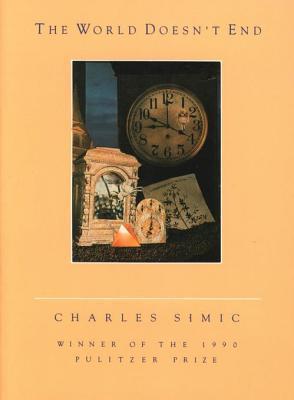What do you think?
Rate this book


88 pages, Kindle Edition
First published January 1, 1989
My mother was a braid of black smoke
She bore me swaddled over the burning cities
The sky was a vast and windy place for a child to play.
We met many others who were just like us................
Thousands of old men with pants lowered sleeping
in public restrooms.
You're exaggerating! You're raving!
Thousands of Marias,of Magdalenas at their feet
weeping.
The stone is a mirror which works poorly.
Nothing in it but dimness. Your dimness or its dimness, who’s to say? In the hush your heart sound like a black cricket.
At least four or five Hamlets on this block alone. Identical Hamlets holding identical monkey-face spinning toys.
“These are dark and evil days”, the mouse told me as he nibbled my ears.The boy who grew up in poverty nurtured the dream of his father embedded in a faraway land of gold. Born in former Yugoslavia in 1938, he migrated to the land of golden dreams. Famously asserted that Hitler and Stalin were his two travel agents, Charles Simic rebelled the formulated rules of poetry releasing the constrict barriers of stanzas and verses into a boundless scandalous world of prose and honoured it with poetic rousing. Retorting to the selective criticism on his work, Simic articulated, “They look like prose and act like poems, because despite the odds, they make themselves into fly-traps for our imagination.”
O the great God of Theory, he’s just a pencil stub,a chewed pencil stub with a worn eraser at the of a huge scribble.
My secret identity is
The room is empty
And the window is open

“Tropical luxuriance around the idea of the soul,” writes Nietzsche. I always felt that, too, Friedrich! The Amazon jungle with its brightly colored birds squawking, squawking, but its depths dark and hushed. The beautiful lost girl is giving suck to a little monkey. The lizards in attendance wear ecclesiastical robes and speak French to her: “La Reine des Reines,” they intone. Not the least charm of this tableau is that it can be so easily dismissed as preposterous.

In a forest of question marks you were no bigger than an asterisk.
O the season of mists! Someone blew the hunting horn.
The dictionary said you were a sign indicating an omission; then it changed the subject abruptly and spoke of "asterisms," which supposedly have to do with crystals showing a starlike luminous figure.
You didn't believe a word of it. The question marks had valentines carved on their trunks so you wouldn't look up and notice the ropes.
Greasy ropes with baby nooses.